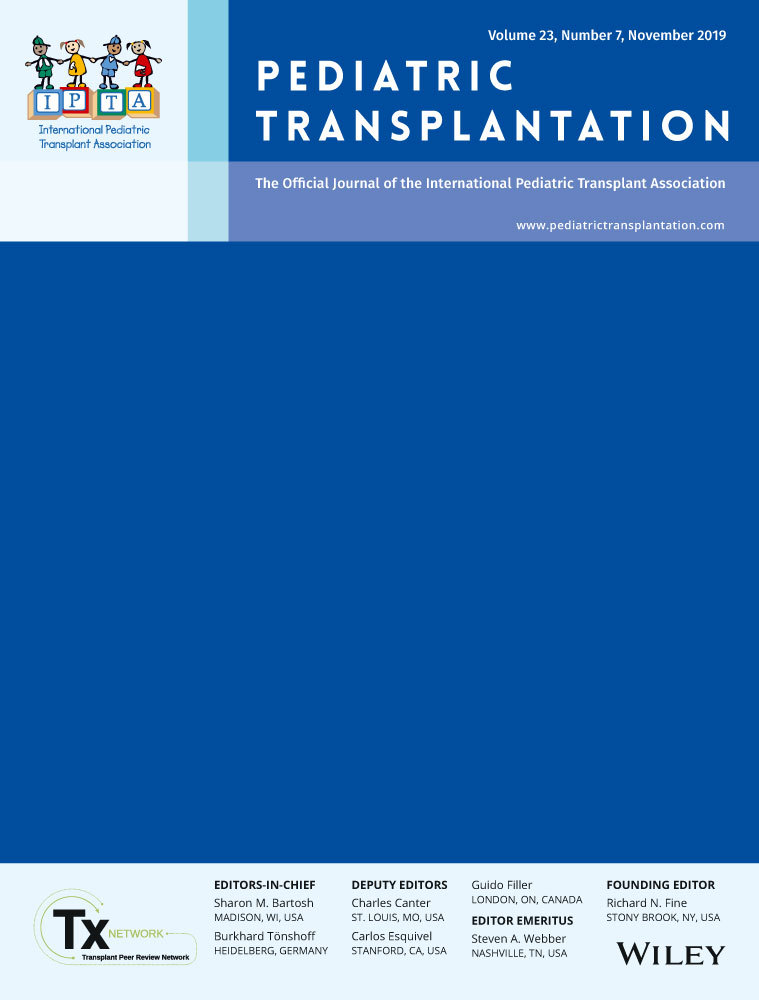Digital medicine program with pediatric solid organ transplant patients: Perceived benefits and challenges
Abstract
Given the complexity of the pediatric post-transplant medication regimen and known medication adherence difficulties within the solid organ transplant population, interventions to improve adherence continue to be explored and fine-tuned. Advances in technology have led to the development of new programs aimed at improving medication adherence and the overall care of transplant patients. This manuscript describes implementation of a DMP where transplant patients' medications were co-encapsulated with ingestible sensors, and adherence was monitored via a patient mobile application and a provider portal. The benefits and challenges of the DMP as reported by patients, caregivers, and medical providers are explored in this manuscript. Participant feedback regarding best practices highlighted these benefits: ease of use/intuitive technology, sense of improved communication with medical team, increased knowledge and motivation around treatment regimen, and positive self-reports of medication adherence. Challenges included reluctance to participate (n = 43, 54.43% of patients approached declined participation) and patch wearability difficulties reported by participants (n = 20; 68.97%). Other notable challenges included the following: limited drug profile compatibility with the DMP technology and concerns about privacy and electronic data sharing for patients who chose not to participate. DMP implementation highlighted how technological advances offer novel methods to assess adherence, enhance medical decision-making, and can potentially improve clinical outcomes. Although numerous benefits of the program were recognized by participants, challenges were identified and the DMP technology and medication panel continues to be refined; further investigation of such programs continues to be warranted.
CONFLICT OF INTEREST
The authors declare that they have no conflict regarding this paper and have no involvements that might raise the question of bias in the work reported or in the conclusions, implications, and opinions stated.




